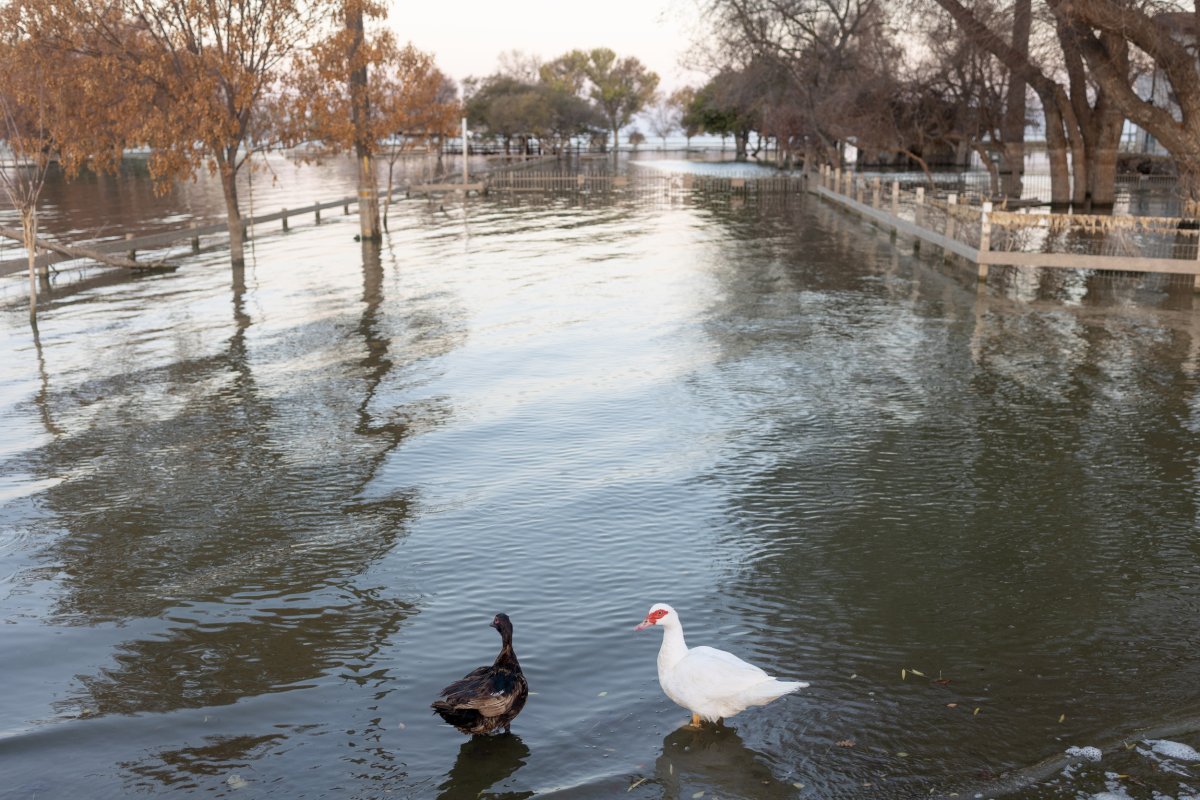California's phantom Lake Tulare has now disappeared.
Despite recent heavy rainfall across the state, the lake's water has receded and vanished once again, according to the San Francisco Chronicle.
Tulare Lake, dubbed the "ghost lake," reemerged last year in the San Joaquin Valley after a series of intense atmospheric rivers that brought heavy rain and record levels of snowpack to the region. The original lake disappeared 80 years ago when water was diverted, and the land was repurposed for agricultural activities. Before then, the lake, which used to be fed by water from the Sierra Nevada, was the largest freshwater lake in the West.
The water began receding earlier this month.
"Kings County is approximately 890,000 acres, and at the height of the flooding, over 120,000 acres were covered in water," a spokesperson for the Kings County sheriff's office told Newsweek earlier this month. Kings County is a community right next to the lake.
" That's approximately 10 percent of the county. However, over the last few months, Tulare Lake has shrunk to approximately 4,500 acres. Some farmland and homes are still affected by the flood waters, but we expect that size to decrease significantly over the next few months."

More recently, Kings County Supervisor and farmer Doug Verboon told the San Francisco Chronicle that there is "no lake anymore."
"There's some wet ground but nothing major," he told the news outlet.
California has seen some very wet weather recently. A series of atmospheric rivers have made their way across the state, causing severe flooding in several areas. The snowpack is still not at the same level it was last year, though.
"Currently, the snowpack will not be as extreme this year, and local and state authorities have done a significant number of improvements to our infrastructure to ensure we are better prepared for future events, specifically the water we absorb from the Sierra Nevada snowpack and local dams," a Kings County sheriff's office spokesperson told Newsweek.
The disappearance of the lake should mean good things for local farmers, who were negatively impacted when the lake first reemerged.
The lake's reemergence was devastating for them, as they lost a lot of land and even their homes to the water. Hopefully, now that the waters have receded, farming can continue in the region.
Although farmers suffered from the lake's return, there have been some benefits, too. A recent Northeastern University study found that native wetland birds, who used to use the area as a stopover for migrations, started returning to the area. But if the lake continues to disappear, the birds will likely follow.
Do you have a tip on a science story that Newsweek should be covering? Do you have a question about Tulare Lake? Let us know via science@newsweek.com.
Uncommon Knowledge
Newsweek is committed to challenging conventional wisdom and finding connections in the search for common ground.
Newsweek is committed to challenging conventional wisdom and finding connections in the search for common ground.
About the writer
Robyn White is a Newsweek Nature Reporter based in London, UK. Her focus is reporting on wildlife, science and the ... Read more
To read how Newsweek uses AI as a newsroom tool, Click here.








